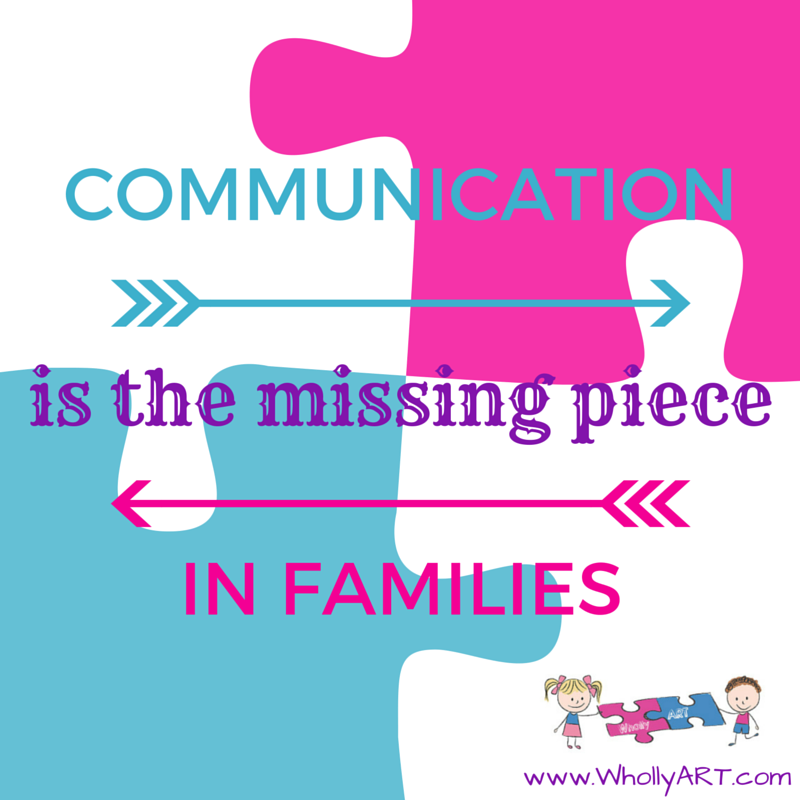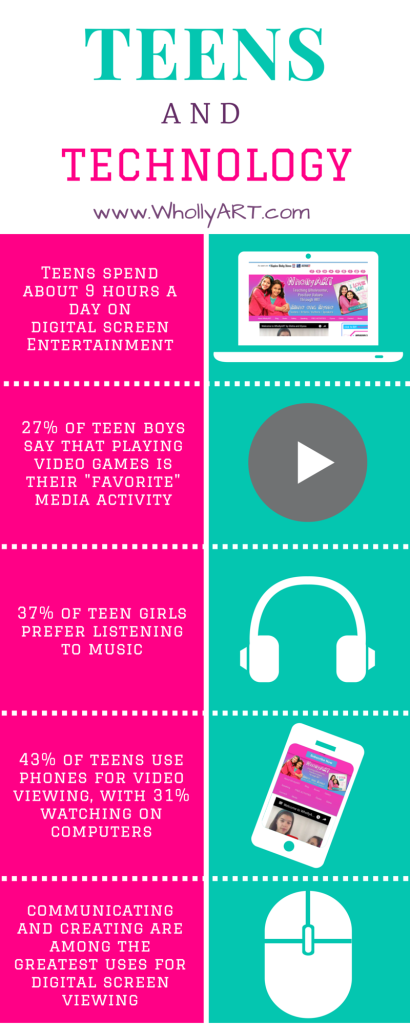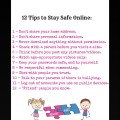Communication is The Missing Piece in Families
Welcome to the 21 Self-Improvement Tips 4 Kids series! This is article number 21, the final article in this series, and then we get to move on to my new series next week! You can be up-to-date on everything regarding my Self-Improvement Series by subscribing to our blog (with an adult’s permission.)
Today’s topic is COMMUNICATION. Last night we were actually talking about how communication is the missing piece in families worldwide, especially with this fast-paced world we live in. Sometimes we have no idea what is going on in our family’s life, and they have no idea about our personal lives either. It’s like we’re living in the same home, but we have no idea what or how we’re doing.

It’s not just about words, it’s also attitude. Studies found that only 7% of communication is through spoken word, 38% percent is body language and tone of voice, and 55% percent is about facial expression, meaning that 93% of communication is nonverbal.
So, my first point would be: other people can’t read your mind! If you are feeling upset, say so. If you need a break, talk. If you are tired, speak up. Your mom or dad won’t know about troubles at school unless you say something.
Here are a few things to avoid when it comes to talking with, to, or about your parents/siblings:
- Criticism: Complaining, (“You always …” or “You never …”), or labeling others (“You’re so lazy.”)
- Contempt: Disgust and disrespect through sarcasm, mockery, insults, rolling your eyes, scowls, and/or hostile humor.
- Defensiveness: Blaming others instead of taking more responsibility. For example, “I would help with the dishes if you weren’t constantly nagging me.”
- Stonewalling: Looking away or down or not acknowledging others. Being reserved and keeping to yourself.
Here are some things I highly encourage when it comes to communication:
- Be available: Make time to stop and talk about things. Give your undivided attention to your family. Sit down and look at them while you talk. Parents are spending less than 7 minutes a day in meaningful conversation with their kids.
- Be a good listener: Listen to your parents, help them feel loved and valued. You don’t have to agree with your parents to be a good listener. Sharing their thoughts with you helps your parents and siblings calm down, and it encourages them to listen to you.
- Show empathy: Tune in to your families’ feelings; let them know you understand them. If they are sad or upset, a gentle touch or hug lets them know that you care. Let them express themselves. Everyone’s feelings are real to them and should be respected.
- Be a good role model: Everyone learns by example. Use words and tones in your voice that you want others to use them. Make sure your tone of voice and your actions send the same message. Be clear. Remember, actions speak louder than words!
[Tweet “Remember, #actions speak louder than #words! #communication #ILoveME #talkaboutit @WhollyART”]
We all have times when we feel we run out of patience and lose control. However, it’s important to keep our cool, and avoid hurting others’ feelings. Here are a few ways to calm yourself when you feel stressed:
- Take a few deep breaths very slowly, and say “Release.”
- Wait 5 minutes before starting to talk to your child.
- Share your feelings of frustration with someone you trust.
- Do not hold grudges. Deal only with the present, and move away from the past.
Now, I want to give some undivided attention to our technology usage. How would like an extra 10 or 15 hours a week? We use technology more than we need it. If we knock off several hours of time, think about how much you could do in that time.
Here are some shocking statistics:
- Tweens (8-12 year olds) are watching about 6 hours of entertainment media daily
- 43% of teens use a smartphone for video viewing, with 31% watching on computers
- Communicating and creating are among the greatest uses for digital screen media
- 27% of teen boys say that playing video games is their “favorite” activity
- 37% of teen girls prefer listening to music
- Teenagers (13-18 year olds) watch about 9 hours entertainment media a day!!!

I implore you to use the time you would to watch TV or put your headphones on to talk to your siblings, ask your parents about their life and their childhood, and you will be surprised at how enjoyable and how much more valuable it is.
Remember to talk with your family, even about the smallest things. Get to know them. Learn about their likes and dislikes, and you will find you have more in common that you thought. Why do you think communication is important? and do you have any tips on making family communication enjoyable and simple? Until next time,
[elisha]




